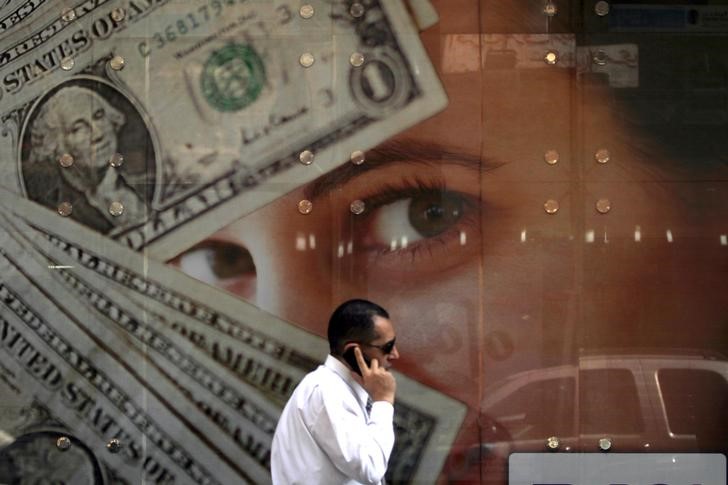Investing.com - The euro dipped against the other main currencies on Friday amid mounting fears over the prospects of a Greek default, but the dollar still ended the week lower against both the single currency and the yen as investors pushed back expectations for higher U.S. interest rates.
EUR/USD was down 0.09% to 1.1352 in late trade, after falling to lows of 1.1293 earlier.
The single currency remained under pressure as a deadlock between Athens and its international lenders continued ahead of the approaching deadline for Greece’s repayments to the International Monetary Fund at the end of the month.
A default by Greece could lead to the country’s exit from the euro zone.
Europe wants Greece to make spending cuts in order to secure a deal that will unlock €7.2 billion in bailout funds and prevent Athens defaulting on its debts when its bailout expires at the end of the month.
On Friday the European Central Bank extended extra emergency liquidity to Greek banks as outflows from banks continued.
The euro was lower against the yen and the pound, with EUR/JPY down 0.28% to 139.28 and EUR/GBP at 0.7148 late Friday.
The safe haven Swiss franc gained ground against both the euro and the dollar, with EUR/CHF down 0.5% at 1.0416 and USD/CHF losing 0.45% to settle at 0.9172.
On Thursday the Swiss National Bank left its deposit rate on hold at a record low and reiterated that it is still prepared to take further action to weaken what it called the “overvalued” franc
But the greenback still ended the week lower against the other major currencies after the Federal Reserve’s rate statement tempered expectations for a rate hike later this year.
The Fed lowered both its U.S. growth forecast and its interest-rate projections on Wednesday, prompting investors to push back expectations on the timing of an initial rate hike.
Fed Chair Janet Yellen said the central bank wanted to see “more decisive evidence” of sustained growth before raising rates, but acknowledged that the economy has “expanded moderately” after a weak first quarter.
USD/JPY was last at 122.7 late Friday, off 0.2% for the day.
The U.S. dollar index, which measures the greenback’s strength against a trade-weighted basket of six major currencies, ended the week down 1.02% at 94.32, the third straight weekly decline
In the week ahead, euro zone ministers are to hold talks in Brussels on Monday to discuss the crisis in Greece.
The euro area is to release data on private sector growth on Tuesday, while the week will also bring what will be closely watched reports on the U.S. factory and housing sectors.
Ahead of the coming week, Investing.com has compiled a list of these and other significant events likely to affect the markets.
Monday, June 22
Markets in China are to remain closed for the Dragon Boat Festival holiday.
The U.S. is to release private sector data on existing home sales.
Also Monday, European leaders are to hold emergency talks in Brussels about Greece’s bailout agreement, which is due to expire on June 30.
Tuesday, June 23
Australia is to release data on house price inflation.
China is to publish the preliminary reading of the HSBC manufacturing index.
The euro zone is to release survey data on private sector activity.
The U.S. is to release reports on durable goods orders, manufacturing activity and new home sales.
Wednesday, June 24
The Bank of Japan is to publish the minutes of its latest monetary policy meeting, giving investors insight into how officials view the economy and their policy options.
In the euro zone, the Ifo Institute is to report on German business climate.
The U.S. is to release revised data on first quarter economic growth.
Thursday, June 25
The Gfk Group is to report on German business climate.
The U.S. is to release the weekly report on initial jobless claims as well as data on consumer spending.
Friday, June 26
New Zealand is to report on the trade balance.
Japan is to release reports on inflation, household spending and unemployment.
Bank of England Governor Mark Carney is to speak at an event in London.
The U.S. is to round up the week with revised data on consumer spending.
